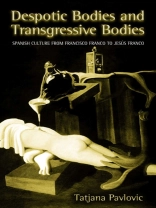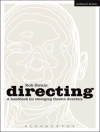Examines crucial moments of transition in Spanish culture and society during both dictatorship and democracy.
Focusing on Spanish culture and society in the second half of the twentieth century, Despotic Bodies and Transgressive Bodies traverses a variety of disciplines: literature, film studies, cultural studies, feminist theory, and history, to examine crucial moments of cultural transition. Beginning with an analysis of the period of autarky-Spain’s economic, cultural, and ideological isolation under Francisco Franco’s regime- Pavlović then explores the tumultuous passage to capitalism in the late 1950s and 1960s. She follows this by revisiting the complex political situation following Franco’s death and points out the difficulties in Spain’s transition from dictatorship to democracy. Combining a strong theoretical background with a detailed study of marginalized texts (La fiel infantería), genres (the Spanish comedy known as the comedia sexy celtibérica), and film directors (Jesús Franco), Pavlović reveals the construction of Spanish national identity through years of cultural tensions.
Table of Content
Acknowledgments
Introduction
1. THE DESPOTIC BODY:
Raza: Espíritu de Franco (1939–1952)
2. THE TRAUMATIZED BODY:
Tormenta de verano (1952–1962)
3. THE AUTHORITARIAN BODY IN AGONY:
El extraño viaje (1962–1975)
4. THE PERVERSE BODY:
Fuego en las entrañas (1975–1985)
Epilogue
TRANSGRESSIVE BODIES OF THE OTHER FRANCO
Notes
Bibliography
Index
About the author
Tatjana Pavlović is Assistant Professor of Spanish at Tulane University.












